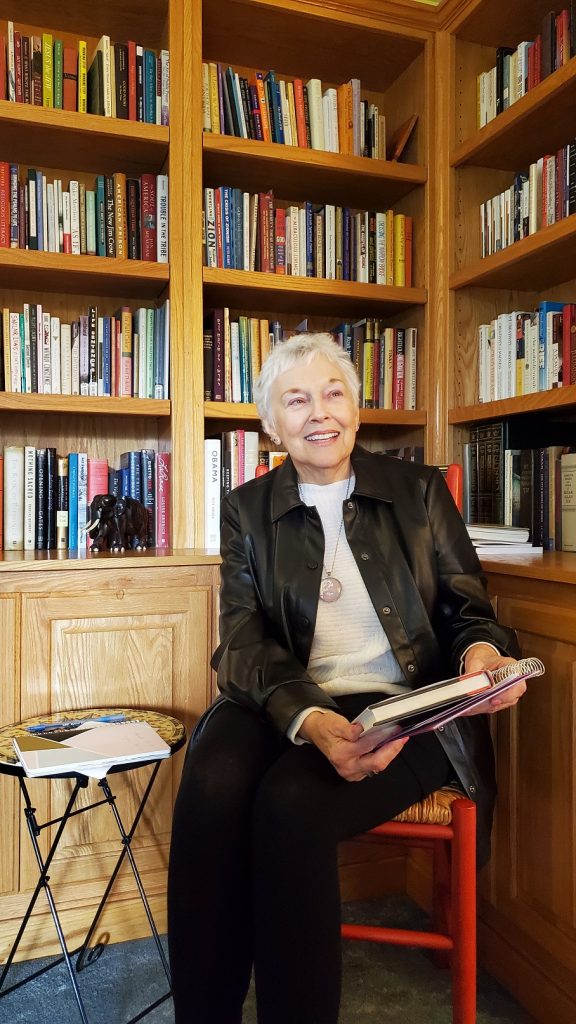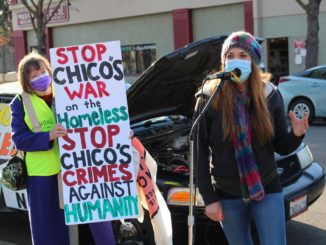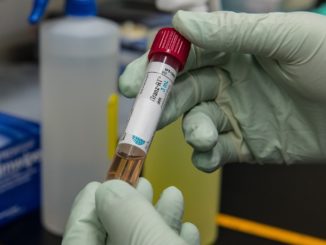![07news-health1 [a]](https://chico.newsreview.com/wp-content/uploads/2022/01/07news-health1-a-678x381.jpg)
Sometimes lost in the conversation about COVID-19 infections and ICU capacities is the impact the pandemic has had on our collective mental health. For this special Health Issue, the CN&R reports on the help that is available to address the issue—from counseling and other county programs to new psychedelic therapies.
In early 2020, Kyle Williams’ life was filled with travel and music—he’d perform at venues in Chico and connect with fans who had known him for years, then do it all over again in another city—Oroville, Sonoma, Reno, etc.
But in an instant, a profession that sustained him creatively, emotionally and financially vanished. Venues closed their doors indefinitely when the coronavirus pandemic escalated and quarantine shutdowns began in March 2020.
Williams found himself reeling from this dramatic shift—in addition to being suddenly unemployed, he had recently gone through a separation and began sharing custody of his two children. For the first time in his life, Williams experienced depression, he recently told the CN&R.
“I went from being out and about playing music three to four times a week to total isolation. … I didn’t realize how much I got from being out and around people, when I do gigs and connect with people,” he said. “The weeks the kids weren’t there were really low and dark.”
As the pandemic, now in its third year, has continued to ravage the world, with over 5.4 million dead from the disease, it has also taken a toll on mental health. Butte County Behavioral Health has seen a growing need for care as clients’ anxiety and depression has worsened, all while grappling with a shortage of health professionals, who are mentally taxed themselves. This mirrors what is happening nationally. According to a New York Times poll of 1,320 U.S. mental health professionals and clinicians, demand has surged and wait times are longer. General anxiety and depression are the most common reasons people are seeking support, along with relationship issues.
However, mental health providers have also witnessed a decrease in stigma when it comes to seeking treatment and have found that telemedicine has helped break down barriers to accessing care. Local professionals who spoke with the CN&R also emphasized the importance of self-care and finding ways to connect with others during this time of uncertainty.
Finding support
In the wake of the pandemic, Williams realized he had to find another way besides playing music to make money in order to have the financial stability needed to care for his kids, he said. He’s now raising funds to attend massage therapy school. While worthwhile, it’s been a tough transition for him, because performing has been “so intertwined with my identity, my passion and connection to other people.”
Though the isolation, depression and financial struggles he’s experienced over the past couple years were at times paralyzing, he said, they also motivated him to learn more about mental health and eventually seek care.
Social media was an important resource that helped him feel less alone, he said. He discovered videos on TikTok created by others who were struggling with their mental health, which was not only “validating and affirming,” he said, but helped inspire him to seek treatment. When he recently checked into the Chico Family Health Center, he posted about it publicly on Facebook and received a lot of support—friends telling him “you are not alone” and “I am so proud of you.”
Williams is now being treated for depression and has an appointment with a psychiatrist to evaluate whether he has attention deficit hyperactivity disorder, or ADHD, as well.
Though he’s still concerned about the shift in his career and uncertainty of the future, Williams said he is hopeful about his treatment. Throughout his struggles, there have been people in his life who have “really shown up when I’m honest about this and where I’m at mentally, and they make space for it,” he said.
“I’m really grateful for that time, as hard as it was.”
Williams is, indeed, not alone in his mental health struggles during the pandemic, according to Jessica Wood, a supervisor with Butte County Behavioral Health’s Adult Services, which provides therapy and rehabilitation services to adults with mental illness. Her team has seen an intensification of depression and anxiety as well as feelings of frustration and fear of the unknown among their clients, some of whom are also struggling with increased alcohol use.
During this time, expanded telemedicine services have allowed the county to overcome some folks’ barriers to treatment. It’s been especially crucial for those with social anxiety, paranoia or other conditions that make in-person appointments difficult and for those who lack transportation, Wood said. Telehealth services have also helped the county better collaborate and have improved patient access to care, added Jess Gilligan, program manager for BCBH Youth Services. For example, a client seeking psychiatric care in Gridley can be virtually connected to an available doctor in Paradise.
“Inter-agency coordination has been strong, and technology has been able to help us with that,” she said. However, the demand has been so great and there is a shortage of health care professionals, she added, so “case load size has increased dramatically.”
This means that some patients “might not be seen as often” as they would like, Wood added, but the county identifies those with the most severe mental health issues and prioritizes their appointments and care. Behavioral Health also began assigning clients a small team of providers (such as a counselor/therapist, nurse, psychiatrist, housing specialist, and/or peer support specialist), in order to have “more hands on deck” to address client needs as well as staff turnover, Gilligan added.
Other new programs have also made an impact during the pandemic, Wood and Gilligan said. The county launched Wellness Recovery Action Plan (or WRAP) groups in 2021 for its clients and staff at some of its centers. WRAP focuses on hope, personal responsibility, education, self-advocacy and support, Wood said, with each participant creating a plan to identify areas in which they may need assistance in order to improve their quality of life. It’s also used in individual therapy as well.
Wood and Gilligan said this programming has made a difference. Gilligan had two staff members expressing concerns about burnout, and after attending a WRAP group, “they came back rejuvenated and excited” about their jobs again. These employees are now helping BCBH expand the program to more of its centers.
“This is hard work to do and to sustain,” said Wood, who leads staff WRAP groups. “We’re teaching people it’s OK to advocate for yourself; it’s OK to get support; … [you]’re not alone. Even though we’re the helpers, we have hard days too, and learning it’s OK to talk to your coworkers about that—it’s powerful.”
Kindess and coping
Since launching her practice in the 1990s, local therapist Silona Reyman has witnessed the resiliency of the human spirit and tenacity with which people continue holding onto hope despite tremendous suffering.

Reyman has experienced what she calls a “trifecta of catastrophe” the past couple years. Her husband died suddenly in 2019. Then the pandemic hit. And in 2021, she was diagnosed with stage four pancreatic cancer that is spreading and inoperable. But it’s been a time in which she’s experienced a lot of love and—though it may seem strange, she said—a lot of gratitude, too.
She’s focused on small things that bring her joy each day: a surprise peach pie left at her door by a friend, for example; reading the paper while drinking a good cup of coffee in the morning. She’s focused on the things she also suggests for her clients when they are going through a tough time: exercising, eating well and staying connected to others. Even just one confidante can help, she said, whether it’s a family member or a close friend.
As the pandemic progressed, Reyman noticed similar changes with her clients as Wood and Gilligan have with BCBH—anxiety and depression are common and can be really acute for those who’d experienced them before the pandemic began.
As people have been cut off from their usual rituals, it has led to more feelings of loneliness and pessimism, especially as the pandemic has lingered, Reyman said. Divisiveness over politics and health and safety mandates has contributed to rising frustration. There’s a fatigue that wears away at the hope that people have for a better tomorrow.
“There’s a tendency for us to feel very alone, and now in particular, because we are drifting in this confused and unsure world on this path that seems endless,” she said.
The people who are coping the best are those who are “taking care of their health as best as they can,” not just physically but mentally, Reyman said. Being kind—to oneself as well as others—and patient is key.
“We’re just in a tough, tough spot,” she said. “Turn that love back on yourself.”
She encourages her clients to accept whatever feelings arise, even though it is challenging.
“I worry about people who push away the grief or the fear or the sadness,” Reyman said. “It is so healing just to walk through it, as difficult [as it is].
Gratitude lists may sound “Pollyanna-ish when you’re suffering,” she added, but can be useful tools. Reyman uses them and also keeps a list of activities that help her cope when she’s having particularly hard days, such as journaling, reading poetry, meditating and praying, and spending time with her children.
“I do feel there’s so much anger in the air, and frustration…. If we have something solid beneath us—a therapist or a friend or family, or basic good health—really take that in. That’s a blessing,” she said. “Whatever you’ve got, savor it.”
Wood echoed these sentiments and encouraged people to use mindfulness and a gratitude stance to help themselves cope, as well as reaching out to loved ones and seeking mental health care if they are struggling.
“We’re in this together.”
Reach out
If you or a loved one are in need of mental health services or experiencing a mental health crisis, call the Butte County Behavioral Health access line at 530-891-2810. Visit buttecounty.net/behavioralhealth for information on available county services.




Be the first to comment